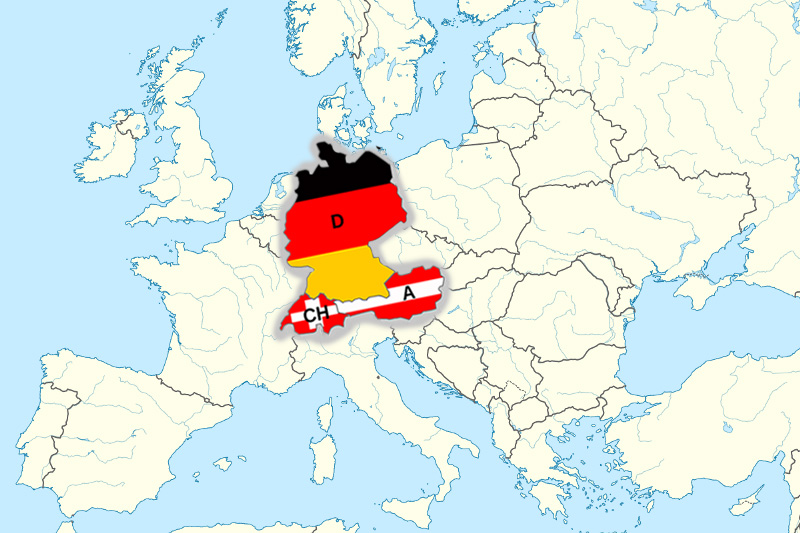
Within three years, between USD 100bn and USD 657bn could be injected into the digital asset market from the DACH region which comprises the German-speaking countries of Germany, Austria, and Switzerland, according to a report released by Russian tech-focused think tank MindSmith.
About 88% of the funds who responded to the survey and that focus on Europe’s German-speaking region currently do not invest in digital assets. However, nearly half – or 46% – of DACH-focused investment funds are interested in digital assets and are ready to explore the digital asset market, the study said.
Additionally, 7% plan to invest by the end of this year.
“The market will still need some time to fine-tune, but already now we are seeing how funds are rapidly turning their attention to the digital asset market. And the imminent introduction of the digital euro will only accelerate the massive adoption of new financial technologies,” Ruslan Yusufov, Managing Partner at MindSmith.
MindSmith says the report was developed in partnership with decentralized finance (DeFi) and blockchain platform developer OnGrid Systems and interdisciplinary research group DEKIS from the Catholic University of Ávila in Spain.
The survey, which collected answers from representatives of more than 70 funds across the region, was timed to coincide with the introduction of Germany’s Fund Location Act. The legislation enabled some 4,000 German special funds (Spezialfonds) to invest up to 20% of their assets under management in cryptoassets starting this month.
Currently, there are about EUR 1.2trn (USD 1.43trn) invested in Spezialfonds with fixed investment conditions, the report said, adding: “Taking into account that about 46% of respondents are more or less interested in investing in digital assets, the potential investment volume in the next three years could reach approximately [EUR 552bn (USD 623.2bn)].”
Even if analyzed by conservative estimates, they elaborated, “7% of respondents are at a late planning stage,” meaning that by the end of 2021, we could expect investments in digital assets of up to EUR 84bn (USD 99.7bn).
Up to 14% of respondents are considering exposing their funds to DeFi solutions, as indicated by the collected data.
Some of the potential obstacles to increased crypto-focused investments by funds from the region include regulatory uncertainty, according to 86% of respondents.
“However, it is at the current moment that the market is witnessing significant progress in this area,” the report said. “Regarding the lack of service providers and the availability of infrastructure, which became a barrier for 57% of respondents, we have also seen significant progress on the part of regulators recently.”
Speaking on the Germany’s Fund Location Act, Lucia della Ventura, a PhD researcher on Decentralised AI and Legal and Compliance Manager at treasury technology platform Ledgermatic, said that it “represents a major step forward the crypto market settling” and reflects the EU Institutions expectation upon how Member States should put in place a clear legal regime regarding digital assets.
The states are called to create an effective regulatory framework in order to increase crypto-assets investments, while awaiting the approval of EU Markets in Crypto-Assets Regulation (MiCA), she said in an emailed comment.
Della Ventura said that: “With the Fund Location Act, Germany has just put a flag on the ground of its commitment to become one of the most important blockchain ecosystem in Europe and a compelling hub for investments in this field. As for the Fintech companies, Germany regulation represents a milestone, testifying that operating in a legal certainty space can allow the growth of business while ensuring consumer and investor protection.”
Laurin Bylica, co-founder of Berlin-based DeFi infrastructure project TheStandard.io, called the law “an enormous opportunity” for Spezialfonds that are exclusively funded by institutional investors, including insurances and pension funds – which have been under great pressure after having to reduce benefit plans or their guaranteed interest rates in early 2021.
“Adding cryptocurrencies to their portfolios will not only be a great hedge against the inflation of fiat currencies, but it will also enable strictly regulated institutional investors to earn an exceptional yield on their investments,” said Bylica.
(Photo: FortuneZ)

